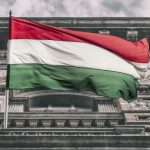By Dioscorus Boles – JOURNAL OF COPTIC CULTURE & POLITICS –
Following the arrest of Ramy Kamil, the Coptic human rights activist on 23rd November 2019 by Egypt’s notorious security forces he was immediately accused in the social media by those accounts run by Egypt’s security forces of “الإستقواء بالخارج” and “الخيانة” which are considered the two sides of a coin. For those who don’t understand Arabic, the first means “strengthening oneself by resorting or appealing to the outside” and the second “betrayal” or “high treason”. The intention is of course to terrorise the Copts from seeking support from the outside. This is rooted in the Islamic understanding of how non-Muslims inside a Muslim dominated country must behave: total submission without course for redress. Any contact with the outside (viewed as dar al harb [House of war]) is regarded as anti-Muslim and deserving of death.
Kamil was arrested for his role in exposing the forced displacement of Copts in Miya Governorate in Upper Egypt by Muslim fundamentalists supported actively or negatively by the police and the security forces, with complete lack of any protection from Egypt’s government. Kamil met the United Nations Special Rapporteur for Housing and accompanied her to Minya, and in her report which she submitted to the UN she spoke about the Coptic “victims of sectarian violence who were displaced from their homes by their own neighbours without sufficient protection from security officials. Several members of this minority are unable to return to their homes, fearing for their lives and security.”[1]
Egypt is infamous for its treatment of its Coptic minority. Government after government comes and promises to abolish the abuse of Coptic rights, but only cosmetic changes are usually voluntarily done. The Copts had reason to expect el-Sisi to fare better because they contributed to the 30 June 2013 Revolution which paved the way for him to seize power from the Muslim Brotherhood government of Morsi. He gave lots of promises but delivered little: in Upper Egypt where the majority of Copts live, the Copts still experience the continuing bullying and oppression by Muslim fundamentalists with or without the collusion of the security forces. The situation in Minya in Sisi’s rule is not less dire than before, if not worse.
The successive Muslim governments are not really sincere in solving the Coptic question. So, what do the Copts have to do? Like all peoples, if resorting to internal avenues, such as the police, courts, ministers, etc. (all part of an oppressive dictatorial regime) doesn’t work, and none in the inside provides them with security and ensure that they prosper in freedom, the Copts would be expected to appeal to the international community. Even St. Paul the Apostle did that: when he couldn’t find local justice in Palestine he appealed to Caesar in Rome (Acts 25:1-12). And Rome of yesterday is the United Nations of today. But the international community is not just the UN, and its various institutions. It includes: regional organisations, such as the AU and EU, and international human rights organisations. It also includes states, such as the USA, EU, UK, Australia, Canada, etc. – states with which Egypt has diplomatic ties. Egypt is part of the international community and must abide by the international law, which protects minorities and guarantees their human rights. It cannot wriggle its way out of its responsibilities in that.
It is not betrayal or high treason to appeal to the international community for help to intercede or intervene with the Egyptian government to improve the lives of the Copts, protect them, and ensure their individual and collective rights. Rather than being treason, it is a right and duty – duty to help one’s people, and duty to rid Egypt of injustice and ensure that Egypt becomes a better place. We do not condone military intervention, but we absolutely support any diplomatic intervention or pressure, political or economic, to force Egypt to abide by its international responsibilities. As Martin Luther King Jr has said, nothing in the field of human rights comes without pressure.
The Copts need to know that appealing to the international community is right, moral, legal and good. It is never treason, and it is very effective. A lot of good changes in Egypt, in all matters, have happened not because of internal will but because of external pressure, forcing Egypt to modernise and respect the human rights of various groups, even though that is not yet perfect. This is especially true for the Copts. Without the pressure from the international community and the attention paid by Egypt’s rulers to the views of the world, the West particularly, nothing would have happened to improve the lot of the Copts since Muhammad Ali’s times. Egypt needs the international community and the international community must use this need to ensure that the Copts receive justice and live in dignity and security in Egypt.
If Egypt doesn’t like any intervention from the international community in this matter, it can prevent it by a simple measure: Stop the injustice against the Copts. Simple.
______________________________
[1] Visit of Leilani Farha, The Special Rapporteur on the Right to Adequate Housing to Egypt. End of mission statement (Cairo, 3 October 2018).
WHY APPEALING BY THE COPTS TO THE INTERNATIONAL COMMUNITY IS RIGHT, MORAL, LEGAL AND GOOD




